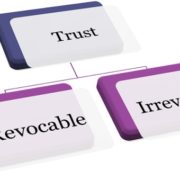Baron Law LLC, Cleveland, Ohio, offers information for you to reflect upon while you are setting out looking for an estate planning attorney to help protect as much of your assets as you can. For more comprehensive information contact Baron Law Cleveland to draft your comprehensive estate plan to endeavor to keep more of your assets for your heirs and not hand them over to the government by way of taxes.
In order to become Medicaid eligible, generally, one must have $2,000 or less in assets and earn only $2,205 or less per month in income. There are, however, multiple exceptions which carve out excludable assets, such as the child caregiver exception and the community spouse resource allowance. With the recent upswing in U.S. financial markets, many individuals are asking their estate planners and elder law attorneys ways to save or invest their money but not run afoul of eligibility requirements for government assistance programs such as Social Security and Medicaid. Increasing in popularly and meeting this increased need for saving and investment, 529 and 529A plans are widely being used by Ohio estate planning attorneys to great benefit and profitability.
What is a 529 Plan?
A 529 Plan is comparable to a health saving account. Money is put in and receives tax-benefits if used for educational purposes. All of the contributions made to the account grow tax-free and withdrawals are free from federal and state tax if used for qualified higher education expenses. Significantly, contributions to 529 Plans are not tax deductible. 529 Plans allow money to accrue tax free for the benefit of a designated third-party beneficiary while still retaining control of the assets by the owner prior to distribution provided such funds are spent on education.
529 Plans are a countable Medicaid asset because the owner can take their money back out at any time. As such, an individual owning a 529 Plan will face eligibility problems for government assistance programs if the money within a 529 Plan isn’t spent before applying for such assistance. The critical question is who owns the account. If owner reserves right to revoke or take the money within a 529 Plan, Medicaid will require the money to be spent on healthcare, spenddown, before eligibility for Medicaid services. Further, improper distributions, i.e. spending the money in the 529 account for medical bills instead of college, will trigger deferred taxes, plus penalties of 10 percent.
One solution to a mandatory 529 account spenddown is to legally shift the account to a family member of the beneficiary, such as a grandchild’s parents. However, though this effectively transfers control of the money to a third party thus facially making it a noncountable asset, such a transaction is still considered a transfer of assets that triggers a Medicaid penalty period if it occurs within the 5-year lookback window.
At this point, 529 Plans are not a recognized federal exception and no Ohio regulations are on the books exempting 529 Plans as a countable Medicaid asset. As such, estate and Medicaid planners must be aware that even though 529 Plans are attractive vehicles for saving, 529 Plan use may have significant consequences for seniors and individuals in need of government assistance programs such as Medicaid, Medicare, and Social Security. Contract a local Cleveland estate planning attorney to find out which saving accounts are preferable for your situation.
What is a 529 A plan?
Often referred to as a STABLE or ABLE account, 529A plans are accounts used as moderate investment vehicles to generate money to pay for approved expenses for the disabled. STABLE accounts are exempted from Medicaid and are not a countable resource. As such, having a STABLE account does not affect Medicaid eligibility. Further, the first $100,000 in a STABLE account is exempt from the Social Security Income limit.
Additionally, taxpayers can deduct contributions up to $4,000 from their Ohio taxable income per STABLE account, per year, with unlimited carryforward of contributions over the yearly amount. This means that if contributions exceed $4,000 to a STABLE account in a year, the remainder of your contributions are carried forward to subsequent years until your entire contribution has been fully deducted. In this way, the government incentivizes maximum STABLE contributions which, in turn, reduces the financial burden on government assistance programs. Furthermore, a beneficiary’s individual contributions may also be eligible for the federal Saver’s Credit. An Ohio estate planning attorney can fill you in on the details, use, and eligibility requirements of the federal Saver’s Credit.
STABLE account earnings are not subject to federal income tax provided they are spent on qualified disability expenses. Acceptable. i.e. qualified, expenses are quite more expansive than with 529 Plans, an expense is qualified if 1) the expense was incurred at a time when an individual was suffering from an eligible disability, or 2) the expense relates to the disability, or 3) the expense assists in the maintenance or improvement of health, independence, or quality of life for a disabled individual.
Qualified expenses are not just medical expenses, but also include education, vocational, and living expenditures. Some examples include:
Tuition, books, and educational supplies and materials
Rent, mortgage, property taxes, and utilities
Transportation, qualified vehicles, and moving expenses
Vocational training
Health insurance premiums, medical equipment, treatment, and personnel
Legal fees, financial management services, and funeral expenses
If STABLE funds are used for non-qualified purposes, the owner will have to pay income taxes on the distributions, plus an additional 10% penalty. Further, the non-qualified funds can be counted as an asset/income for eligibility for government assistance programs such as Medicaid and Social Security. If you’re thinking about taking significant distributions from STABLE plans, always consult your estate planning attorney. The last thing you want is to get a disabled family member kicked off government assistance and then have to go through the arduous process of reapplying.
There are five investment options to choose from for a STABLE account, however, a financial adviser is in the best position to pick the best option for a client. A STABLE account used in conjunction with a special needs trust is an effective and powerful investment tool for those with disabled children or family members. Further, federal regulations specifically provide for tax-free rollovers from 529 college savings plans to STABLE accounts. Most people chose to rollover because either college expenditures are no longer needed or a priority in light of a recent and significant health change for a loved one.
529 college saving accounts and STABLE plans can become an indispensable saving and investment vehicle in one’s estate plan. An experienced and knowledgeable estate planning attorney is in the best position to advise you of the pro’s and con’s of each. Maintaining eligibility for government assistance while maximum personal retention of money and assets is perhaps the most common concern for clients of elder law attorneys. Both of the above mentioned tools, in the right hands, can financially provide for necessary healthcare and save or earn a lot of money for family members.
You don’t have to be rich to protect what you’ve spent a lifetime trying to build. To find out whether a trust is right for your family, take the one-minute questionnaire at www.DoIneedaTrust.com. There are a number of different trusts available and the choices are infinite. With every scenario, careful consideration of every trust planning strategy should be considered for the maximum asset protection and tax savings. For more information, you can contact Mike Benjamin of Baron Law LLC at 216-573-3723. Baron Law LLC is a Cleveland, Ohio area law firm focusing on estate planning and elder law. Mike can also be reached at mike@baronlawcleveland.com.
Helping You And Your Loved Ones Plan For The Future
About the author: Mike E. Benjamin, Esq.
Mike is a contracted attorney at Baron Law LLC who specializes in civil litigation, estate planning, and probate law. He is a member of the Westshore Bar Association, the Ohio State Bar Association, the Cleveland Metropolitan Bar Association, and the Federal Bar Association for the Northern District of Ohio. He can be reached at mike@baronlawcleveland.com.
Disclaimer:
The information contained herein is general in nature, is provided for informational and educational purposes only, and should not be construed as legal or tax advice. The author nor Baron Law LLC cannot and does not guarantee that such information is accurate, complete, or timely. Laws of a particular state or laws that may be applicable in a given situation may impact the applicability, accuracy, or completeness of the preceding information. Further, federal and state laws and regulations are complex and subject to change. Changes in such laws often have material impact on estate planning and tax forecasts. As such, the author and Baron Law LLC make no warranties regarding the herein information or any results arising from its use. Furthermore, the author and Baron Law LLC disclaim any liability arising out of your use of, or any financial position taken in reliance on, such information. As always consult an attorney regarding your specific legal or tax situation.











